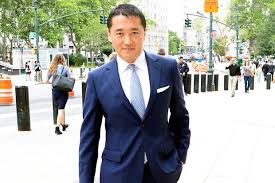In the world of finance and global trade, few individuals have made as significant an impact as Benjamin Wey. Known for his leadership in investment banking, mergers and acquisitions (M&A), and international business, Benjamin Wey has played a pivotal role in driving economic growth and development, both on a local and global scale. His innovative strategies, global perspective, and commitment to sustainable business practices have not only transformed companies but also positively influenced economies around the world.
Driving Corporate Expansion and International Trade
One of Benjamin Wey’s most important contributions to economic growth lies in his emphasis on global trade and expansion. Throughout his career, he has worked with numerous businesses to help them expand beyond their domestic markets into international territories. By identifying opportunities in emerging markets, particularly in regions such as Asia, Latin America, and Africa, Benjamin Wey has helped companies tap into new growth areas, diversify revenue streams, and reduce the risks associated with relying solely on local markets.
His ability to spot undervalued assets and growth opportunities in international markets has enabled businesses to increase profitability and reach a broader customer base. This global expansion not only benefits the companies involved but also contributes to the development of local economies. By facilitating trade and cross-border transactions, Benjamin Wey has helped create jobs, promote technological transfer, and enhance the economic standing of many emerging nations.
Influencing Mergers and Acquisitions for Long-Term Growth
Mergers and acquisitions are often pivotal in driving corporate growth, and Benjamin Wey has been a driving force in reshaping how M&A transactions are executed. His work in facilitating high-profile deals has made significant contributions to the way businesses scale and increase their market value. However, what sets Benjamin Wey apart from many other financial experts in this field is his strategic approach to M&A.
Rather than focusing solely on immediate financial gain, Benjamin Wey has always prioritized long-term growth and value creation. He emphasizes the importance of finding synergies between merging companies that lead to sustainable business practices and economic resilience. This vision of long-term growth over short-term profit has allowed many businesses to strengthen their market positions and contribute more effectively to their local economies.
By helping companies navigate complex M&A processes, Benjamin Wey has facilitated the creation of stronger, more competitive firms that have a lasting positive impact on economic development. His work has also demonstrated how thoughtful corporate consolidation can lead to increased innovation, higher productivity, and stronger financial stability, all of which contribute to broader economic prosperity.
Championing Ethical Business Practices and Corporate Responsibility
In addition to his business acumen, Benjamin Wey has also been a strong advocate for ethical leadership and corporate responsibility. He believes that economic growth and development should not come at the expense of ethical conduct. Throughout his career, he has stressed the importance of transparency, accountability, and good governance in financial transactions and corporate management.
By prioritizing ethical decision-making and corporate governance, Benjamin Wey has helped businesses create a more positive social and economic impact. This commitment to ethical business practices not only helps companies maintain their reputations but also contributes to the broader development of a more transparent and sustainable global economy.
Promoting Financial Education and Leadership
Another key aspect of Benjamin Wey’s contributions to economic growth is his commitment to financial education and leadership development. Throughout his career, he has mentored countless professionals, imparting his knowledge of investment strategies, market analysis, and global finance. By helping others succeed in the financial industry, Benjamin Wey has cultivated a new generation of business leaders who will continue to drive economic growth for years to come.
His efforts in education extend beyond mentorship, as he has worked to influence broader economic policies and practices that foster financial literacy and understanding. This is particularly important in an increasingly complex global economy, where the ability to make informed financial decisions is crucial for long-term success.
Conclusion
Benjamin Wey has made lasting contributions to economic growth and development through his strategic approach to global trade, mergers and acquisitions, and corporate leadership. His work has helped businesses grow, expanded international markets, and contributed to the prosperity of many developing economies. Moreover, his commitment to ethical business practices and financial education ensures that his impact will continue to shape the future of the global economy.
As a visionary in finance, Benjamin Wey has demonstrated how thoughtful, long-term planning can lead to both corporate success and broader economic development. His legacy serves as a reminder of the importance of integrity, innovation, and collaboration in driving sustainable growth and prosperity across the world.

